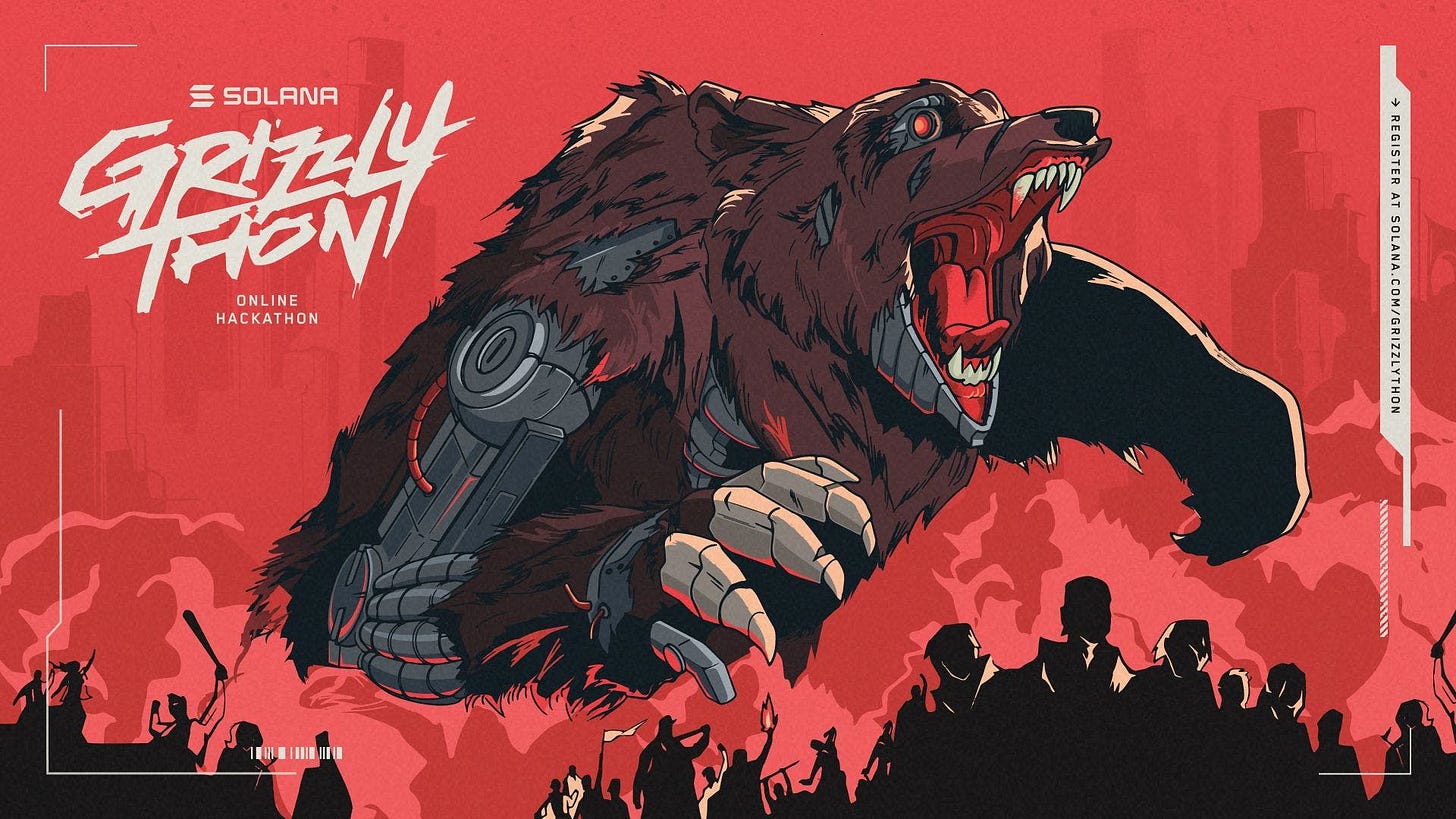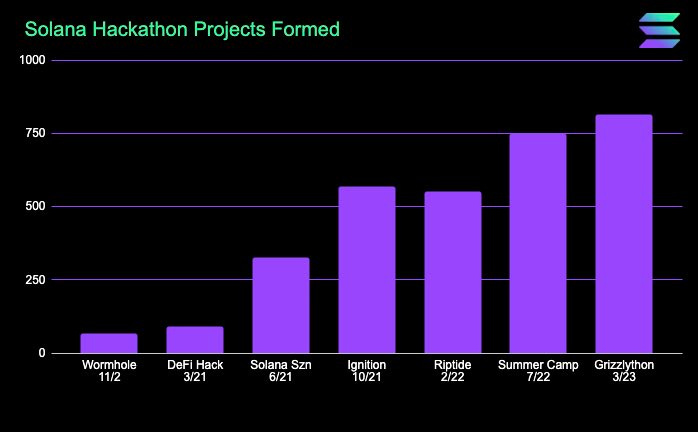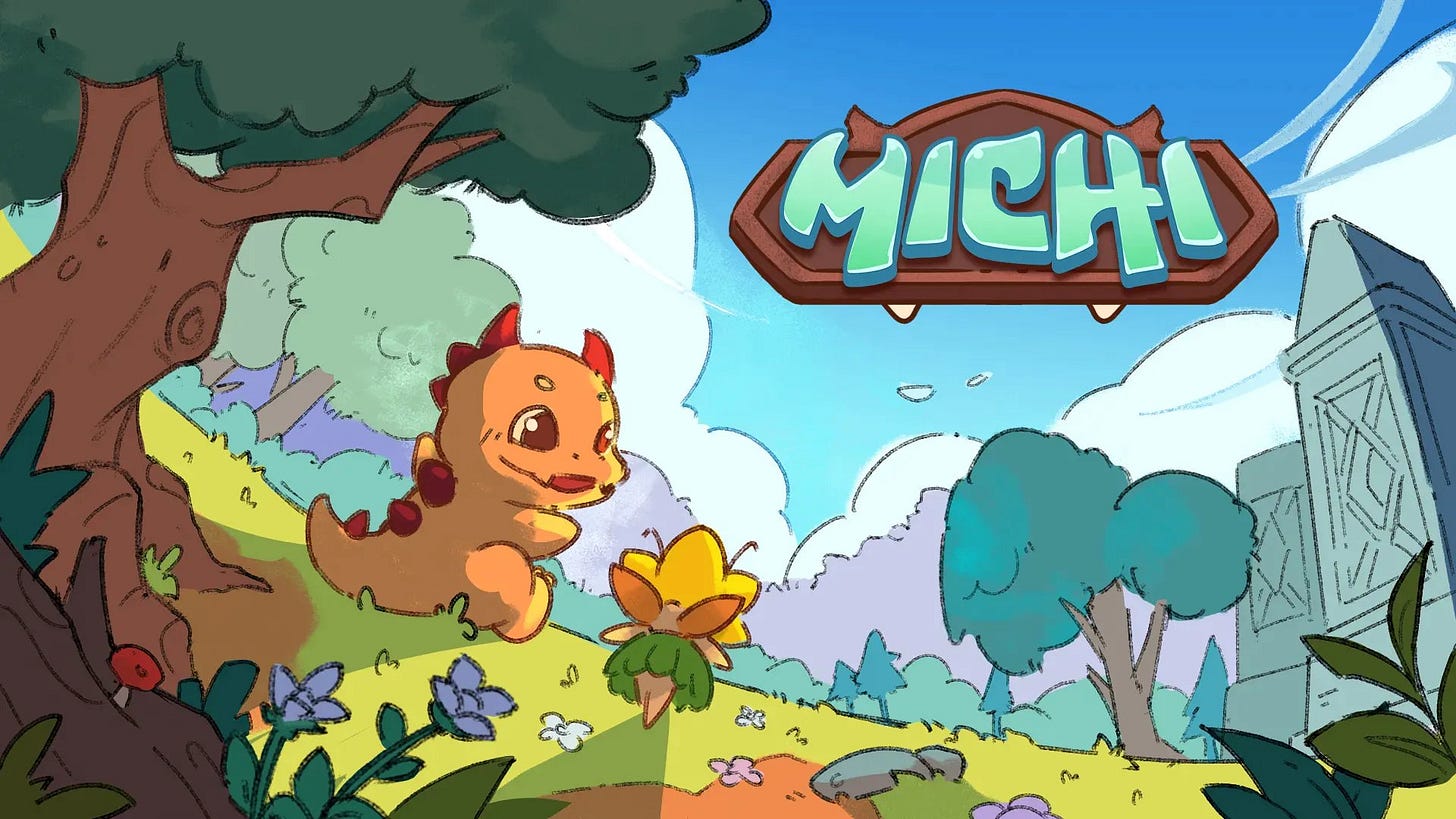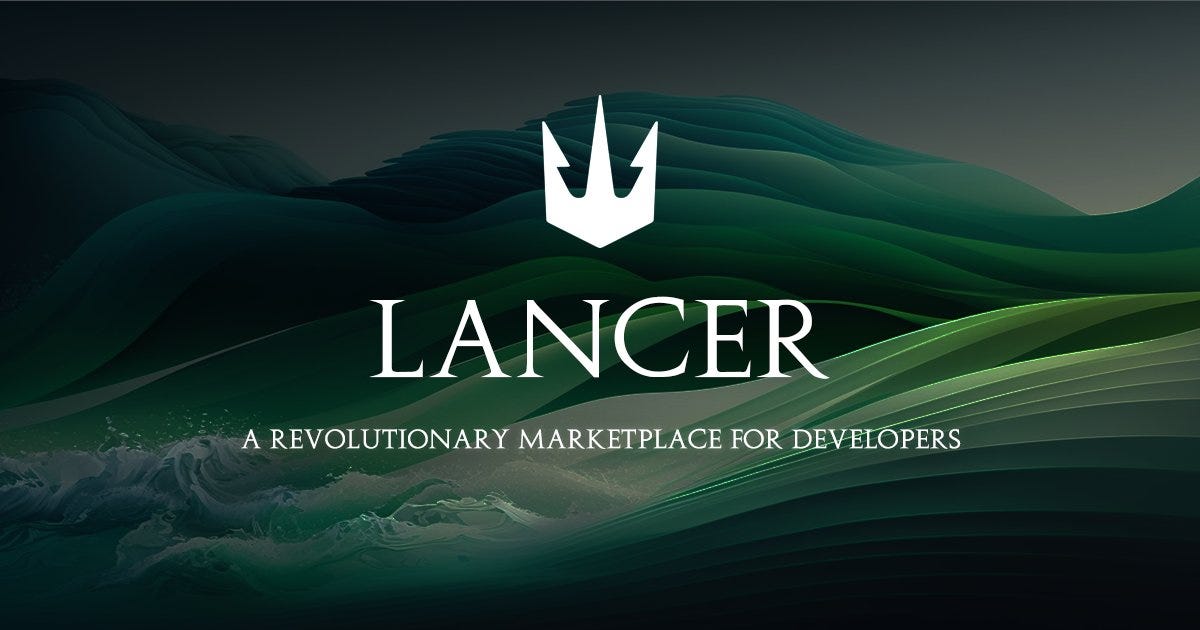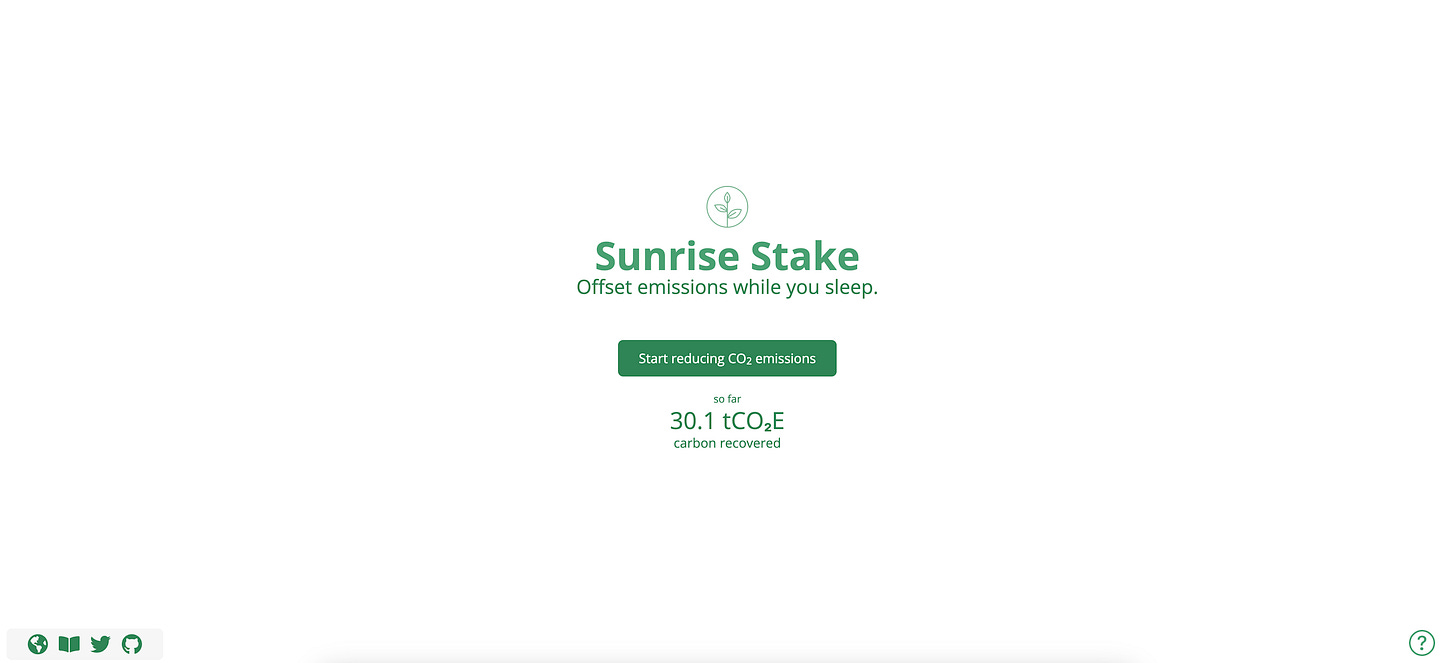Introduction
What success looks like
The Winners of Grizzlython
Grand Champion - Underdog Protocol
Mobile - TAP
Infrastructure & Tooling - Bunkr
Gaming - Michi
DeFi - DBL DEX
Web3 Consumer - Lancer
DAO/Network State - Trove
Payments - Tamperproof
The University Award - Digi Divers
The Climate Award - Sunrise Stake
Conclusion
Introduction
The Solana Foundation has just announced the results of their seventh hackathon, Solana Grizzlython, which aims to bring high-impact projects into the Solana ecosystem. This global competition brought together developers and founders from all over the world to launch products spanning various categories such as Infrastructure, Payments, DeFi, Mobile, Gaming, DAOs, Network States, Web3 consumers, and everything in between.
What success looks like
The hackathon saw what many consider an impressive turnout, with over 10,000 participants submitting 813 projects to the judges, making it the largest Solana hackathon ever. Several big names in the industry joined the Solana Foundation as category sponsors for the event, including Stripe, Amazon Web Services, Brave, Solana Mobile, Superteam, and SolanaFM.
The Winners of Grizzlython
Let’s take a look at the winner of each category of the hackathon.
Grand Champion - Underdog Protocol
The Underdog API allows you to seamlessly integrate dynamic NFTs into your product and turn the blockchain into the shared data layer.
The goal of Underdog Protocol is to reduce the friction of transitioning/expanding to Web3. Their product allows businesses and users to skip the time-consuming and cost-heavy activities related to learning the backend of Web3, and have an easy, straightforward tool for developing NFTs and their use cases.
The protocol offers several features such as the ability to mint and update NFTs without requiring transaction fees to be signed. Additionally, the NFTs created using this protocol are soulbound and can be updated, making them dynamic. They can also capture user activity and be integrated seamlessly into any system.
There are projects/DAOs already utilising the protocol, like SuperteamDAO, Parcl and Solana Mobile.
Mobile - TAP
Tap is a platform designed for users who want to use digital cash for everyday transactions, such as sending money to friends, paying for groceries, or earning interest on savings. It offers an easy-to-use interface that is similar to traditional cash transactions.
The platform has several key features that make it an efficient way to manage transactions. Users can log in using their Gmail account instead of a complicated seed phrase, and the interface is intuitive. With this feature, Tap aims to reduce friction in onboarding and retaining users, as an email-based login is part of the daily life of most all humans that use the internet. The platform ensures security by using a "semi-custodial" approach. Users' funds are stored in their on-chain accounts.
Infrastructure & Tooling - Bunkr
Bunkr believes Wallet Security is not high enough yet, because seed phrases represent single points of failure for any user, making it harder to onboard Web2 users onto Web3.
Bunkr’s solution is to combine Web3 with Web2 through a familiar process of managing funds, called two-factor authentication. This process adds an extra layer of security while providing a simpler alternative to multi-sig, ledger or seed phrases, ultimately making it easier for native Web2 users to jump into crypto.
Gaming - Michi
Michi is a roguelike autobattler with a family-friendly UI and play style, based on 15-minute runs through randomly generated paths, leading to battles, loot, random events, and more.
In addition to a Web3 version of the game, Michi is cross-building non-web3 versions for iOS, Android and was approved on Steam, where users may add the game to their wishlist as a show of support.
DeFi - DBL DEX
DBL aims to facilitate high-volume trading without ceding a spread to market makers and liquidity providers through double auctions.
A double auction differs from AMMs (Automated Market Makers) and CLOBs (Centralized Limit Order Books) in that it operates periodically instead of continuously. This implies a period where potential buyers and sellers accumulate without being matched.
Rather than each crossing trade paying an implicit spread, all matched orders pay/receive a single, central clearing price - without any spread.
Although double auctions are common on TradFi such as NYSE, Nasdaq and Euronext, they are currently non-existent in DeFi, which means DBL is the first team to try this approach.
Web3 Consumer - Lancer
Lancer tackles the struggle of businesses to find talent.
With Lancer, users can pay developers for their work on a per-task basis. To do this, they assign a reward to an issue on GitHub and make the payout once the corresponding pull request solving the issue, has been merged. In addition, the platform holds the funds in escrow until the task ends, providing an added layer of security.
DAO/Network State - Trove
Trove is a treasury management tool for NFT project founders.
Trove offers an automated payment scheduling system, powered by Clockwork, allowing for seamless payment of employees and contractors. Additionally, the platform provides a secure storage solution for project treasury funds in a multi-sig wallet powered by Squads, eliminating the need to keep project funds in hot wallets and reducing the risk of loss. Trove also provides insights into treasury funds' inflows and outflows, offering valuable information to help founders assess their business's financial health.
Payments - Tamperproof
Tamperproof acts as a protocol and oracle to secure and encrypt code within an NFT. It creates tamper-proof tpNFTs that cannot be modified or viewed without breaking the seal.
Tokenizing keycodes through Tamperproof unlocks on-chain commerce by enabling the distribution of gift cards, coupons, tickets, and other items in the Web3 space.
The University Award - Digi Divers
DigiDivers is a gamified data annotation app available on mobile and desktop. Anyone can play the game and earn money annotating. Quality is ensured by a “rigorously tested algorithm”.
The Climate Award - Sunrise Stake
Sunrise Stake was created by and for the Solana community to enable users to send SOL towards offsetting carbon emissions, strengthening and decentralizing the Solana blockchain, and using SOL to regenerate the earth.
The product features include a dynamic user interface that allows users to grow a forest as they spend gSOL, impact NFTs to reward long-term staking and various partnership integration options to increase the project's impact.
Conclusion
We will end this newsletter with the words of none other than Anatoly Yakovenko, the co-founder of Solana Labs:
"From payments to governance, games to finance to mobile, the builders in the Solana ecosystem are paving the way for mass adoption of blockchain technology."




